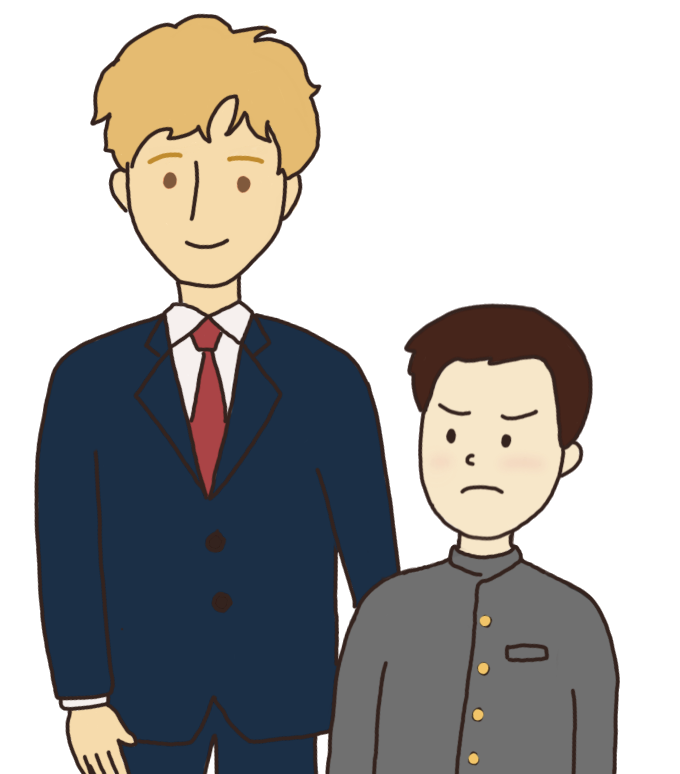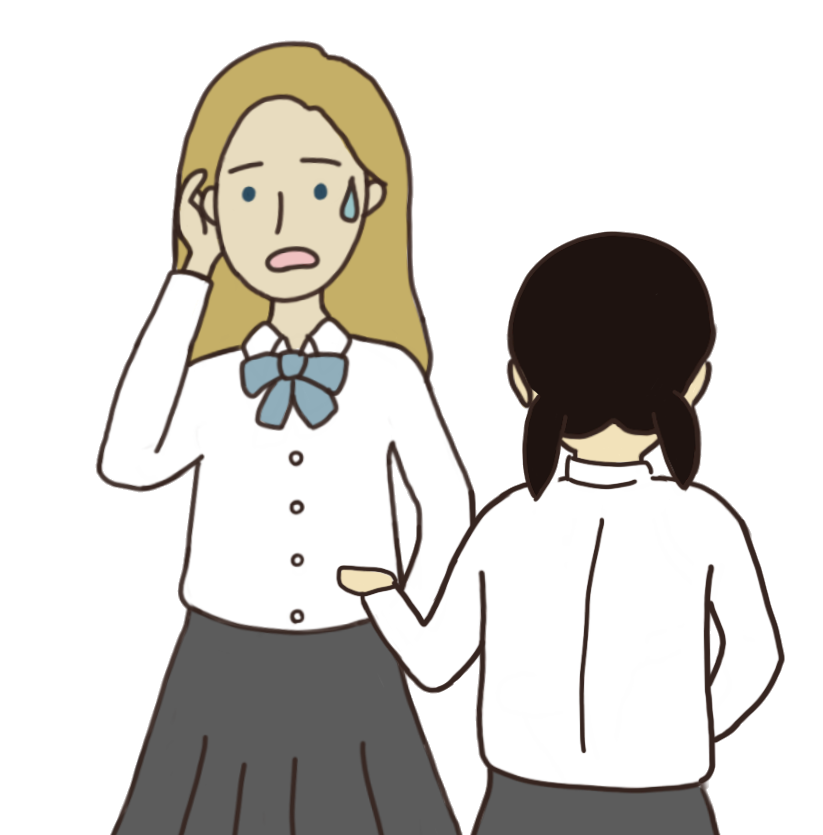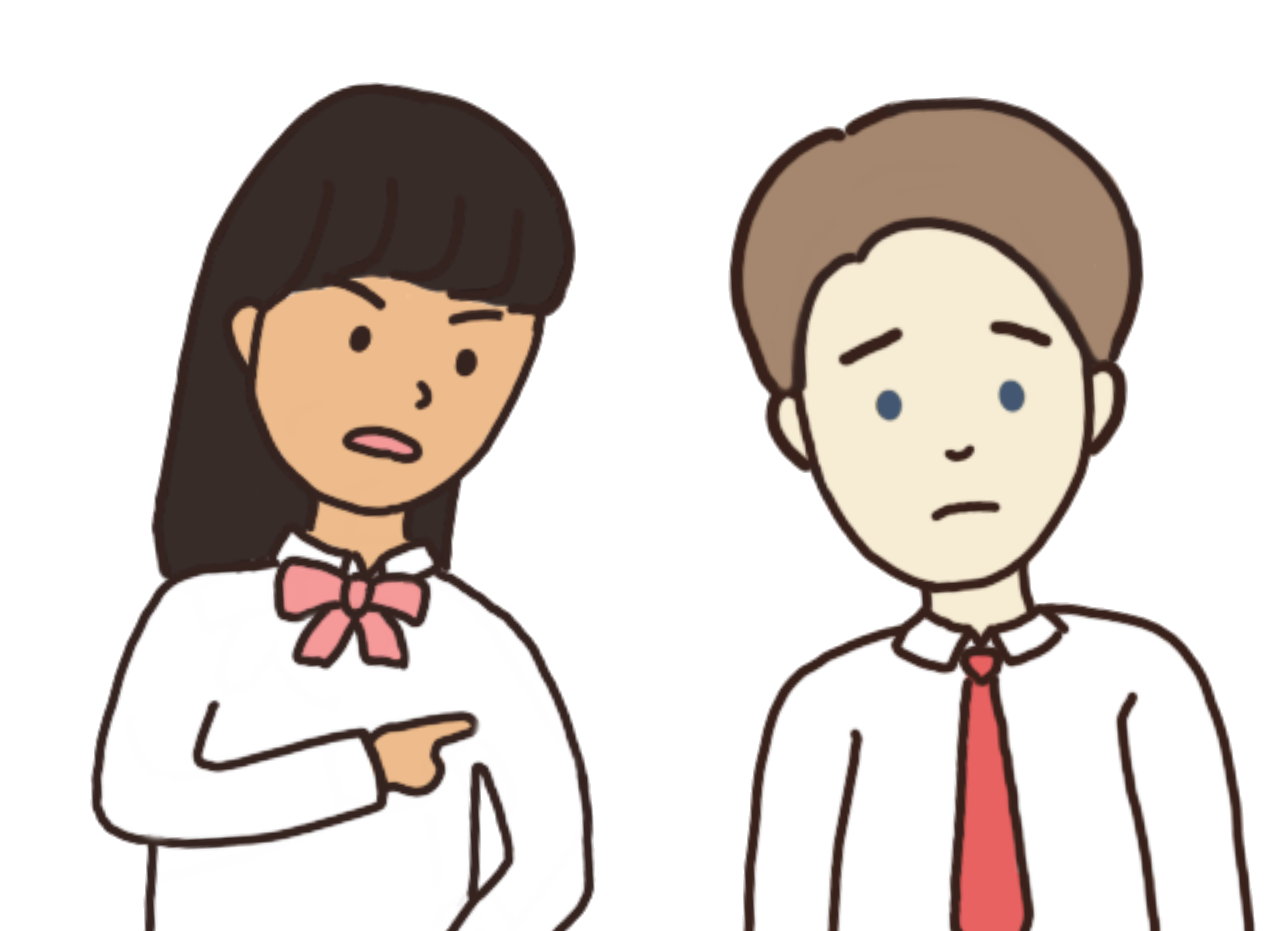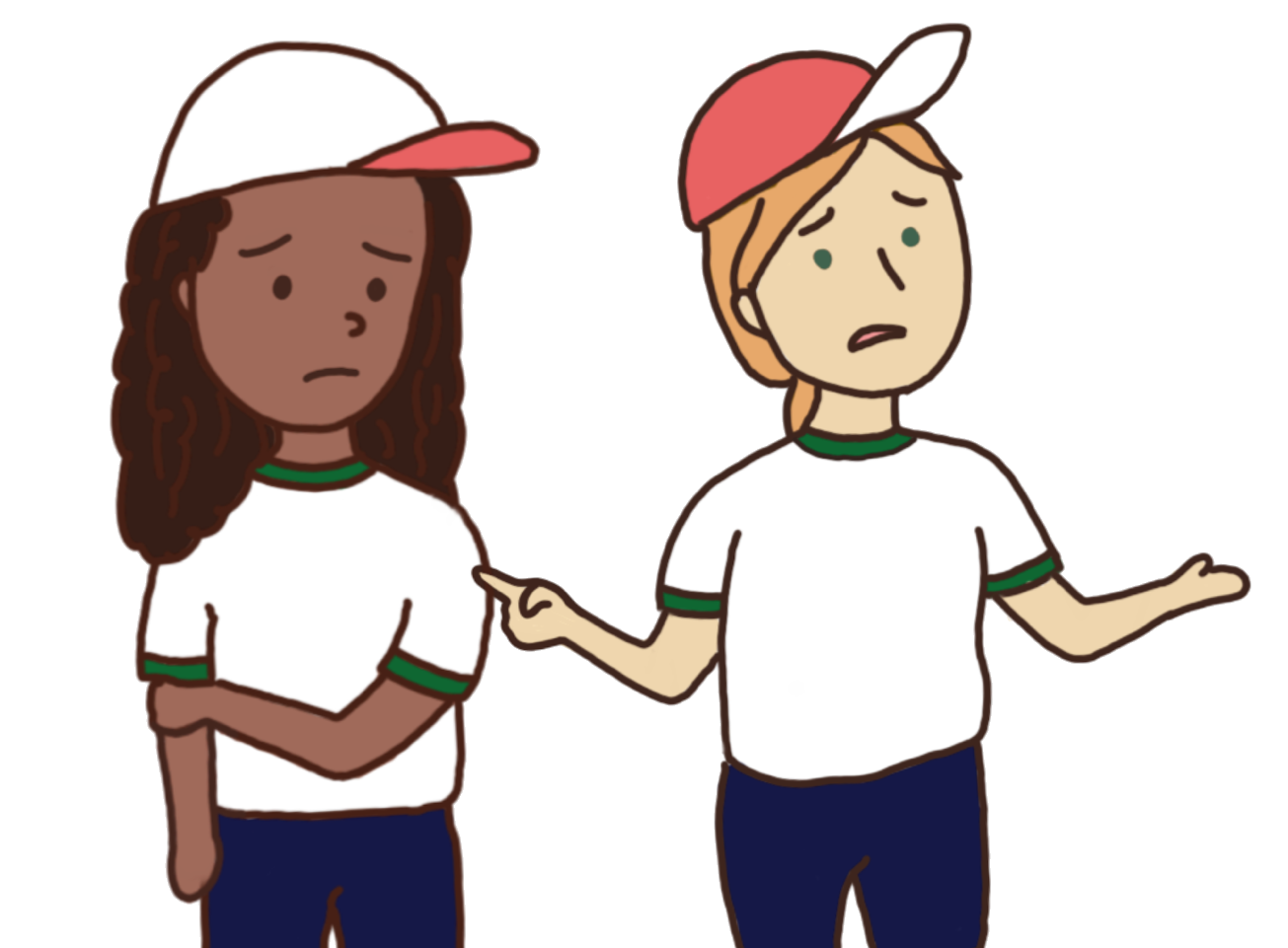Step2
Let's put ourselves in their position
What if you had to live in the country that speaks the language you don't know?
Can I make friends?
Can I enjoy life there?
Can I even enter school…?
Can I keep up with the classes?

ExampleLet’s look at the examples our member has experienced or saw for real

When I was walking with my dad on the occasion of the ceremony or the class observation, everyone saw me and made a fuss saying “He’s a foreigner!”.
I then began to think I don’t want to be with him anymore.
When I was speaking Japanese, someone said to me that “You’re so good at Japanese”.
But for me, that’s just an ordinary thing to speak Japanese, so I kind of felt offended to be complimented for each and everything that crops up.
Yet since I also know they didn’t mean any harm, I can’t tell them all the more, so it’s quite painful.


When I warned the kid to stop making fun of an international kid like me, they said “Foreigners, just zip your lips”.
When I tell someone who I met for the first time that I have my roots abroad, they mostly say ”speak something in your mother language!”.
Even though I really don’t know what I should speak, when they require me persistently, it’s kind of annoying…


In one PE’s class, when we were doing a pair dance, my pair suddenly said “I don’t want to do it with her, so switch the pair!” in a really big voice.
I have never been told such a thing before, so I was about to burst into tears for vexation.
Eventually, the teacher warned him and the class resumed, but I thought “I also didn’t want to do it with you more!”